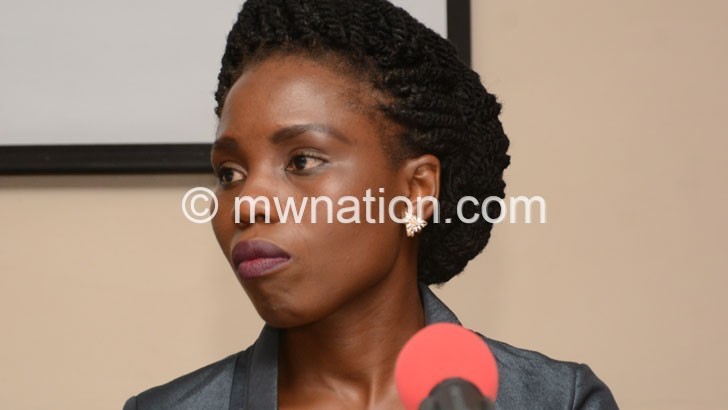Women demand media visibility
Linda Mwapasa is the first woman in Balaka to be elected a ward councillor since the dawn of democracy in 1993.
The 32-year-old, who studied accounting at Lilongwe Technical College, won Bwaila Ward in Balaka North Constituency on Democratic Progressive Party (DPP) ticket in May 2019, five years after vying for a parliamentary seat.

“I had adequate funding for my campaign, but I didn’t make use of the media or rather journalists sidelined me,” she says.
Women profiling
In 2019, Mwapasa benefitted from the NGO-Gender Coordination Network gender agenda to shine a light on women candidates and calls for equal representation of men and women in politics.
“The media profiling campaign greatly marketed my manifesto to the voters. The media plays a powerful role in shaping what voters know, what they think is important and how they view women. It is a powerful tool for fighting gender stereotypes,” she explains.
Madalitso Spark, 24, from Chulu Village in Traditional Authority Kalembo, wants to become a councilor like Mwapasa.
She dropped out of school after getting pregnant, but re-enrolled and obtained her Malawi School Certificate of Education after giving birth to fulfil her dream.
Repeated media portrayals of women aspiring for leadership positions have fired her up to try her luck in 2025.
She says: “Positive media coverage of successful women improves perceptions and leads to future electoral gains for women.
“The media provides information, educates women and give them courage to race for key governance and decision-making positions.”
Florence Mapisi, 38, is a successful businessperson in Chiwaya Village, T/A Nkaya. She was area development committee secretary for three consecutive terms.
She urges the media to give women positive visibility as the country struggles to achieve equal representation of men and women in leadership positions as well as in the media.
Mapisi feels rural women are left behind because the media is concentrated in urban areas and is male-dominated.
Thandizo Mphwiyo, NGO-GCN chairperson for women in politics and decision-making, says women participation remains low though decentralisation gives them more room to participate in local governance and decision-making.
“The media should popularise women experiences as a platform for current and potential female leaders to articulate their diverse stories and become newsmakers,” she says.
Mphwiyo urges media houses against shunning women as it contributes to low women representation in influential positions.
She calls for increased the pace to achieve the Beijing Platform and Commonwealth Plan of Action for Gender Equality, which requires no gender to occupy over 60 percent of seats in public service and political appointments.
The two thirds rule is engraved in the country’s Gender Equality Act cited by marchers in nationwide protests against President Lazarus Chakwera’s failure to achieve legally acceptable representation of men and women in boards of public institutions.
Media practitioner Eziaius Mkandawire says the media plays a vital role in advocacy for more women representation in decision-making positions, but coverage of women candidates remains low.
He explains: “Women in politics are sidelined and studies reveal that media coverage on women tends to focus on their domestic aspects rather than their position on issues.
Mkandawire says inadequate women’s coverage in the media seems to be a worldwide phenomenon.
In 2006, the Association of Women Journalists reported that only 17 percent of articles quote women, with one in 14 women portrayed as victims compared to one in 21 men.”
Mkandawire wants the media to become an inclusive voice of women empowerment and other populations being left behind.
Time to open up
Media Institute Southern Africa Malawi Chapter chairperson Teresa Ndanga says women should begin to “sell themselves” to the media.
“The media has made efforts to shine the light on the few women that seem ready to utilise the opportunity, but obviously they are not enough because not many feel ready to talk to the media,” she said.
Ndanga asks the media can help increase women’s participation in politics and local governance.
NGO-GCN is running a campaign aimed at deepening democracy through increased women’s political participation and decision-making in local governance in Balaka with support from Hivos.
The campaign rallies the media to portray and expose women as active political participants and leaders.
“The Sadc Gender and Development Protocol requires media houses to advance gender equality in practice and structure, so journalists should detest all forms of stereotypes against women,” says Zainab Chisenga, NGO-GCN monitoring, evaluation and learning officer.





